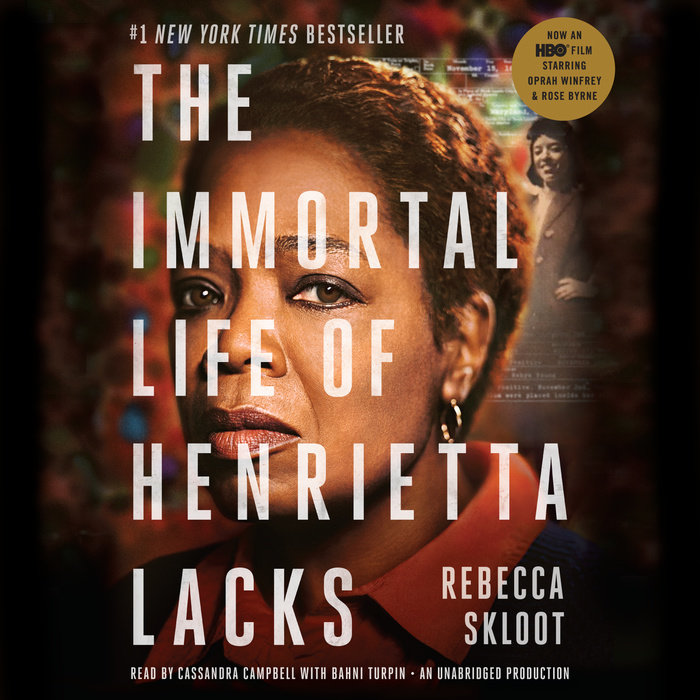
The Immortal Life of Henrietta Lacks
by Rebecca Skloot
published by Crown; audiobook published by Penguin Random House
2010
OH MY GOODNESS, THIS BOOK. This book is several books in one. At least.
This is a book about the dawn of cell culture, and the scientific beginnings of being able to keep human cells alive outside the body. This ties directly to the biotechnology industry I work in, and provides a history of early techniques and advances that I didn’t know I needed to know!
This is a book about the lives of American Blacks in or from the 1950s American South, the struggles of people too poor to leave the lands on which their ancestors were slaves, the burdens on women who lived with older male cousins who molested them, and the social hierarchies that followed those who left to the north, where no one questioned doctors. (I have never been more grateful that my Black ancestors fled to the midwest… Thank you, grandma!)
(Please note that I am bi-racial, and my family uses Black more than African-American in our self-descriptions; you’ll see me switch between these terms, and sometimes switch cases (Black or black) in my writing.)
This is also a book about remarkable scientific advances that occurred in during an ethically horrific era, in which studies were performed on people, especially African-Americans and institutionalized people, without their consent.
And of a highly ethical, profoundly curious, deeply committed biologist who wanted to know where HeLa cells REALLY came from, and worked for years with the family of Henrietta Lacks to learn the human story behind the cells.
This book is an emotional roller coaster! From scientific research challenges, to scientists sharing technology freely, to religious Lacks family members who feared their relative was being cloned and that her soul would never rest, to disabled children suffering through medical experiments their families didn’t consent to, to temperamental collaborators, this isn’t the story I was expecting, but it was a remarkable tale, and the audio books was produced to be an amazing ‘listen.’
I recommend this book highly for anyone interested in cell culture, biotechnology, genetic rights, the horrors of mental institutions for the poor, informed consent, being black in the 1950s in the US, and science sleuthing! Sloot does an amazing job of telling the story of writing the book within the book, which is a true adventure. What an author! What a researcher!
